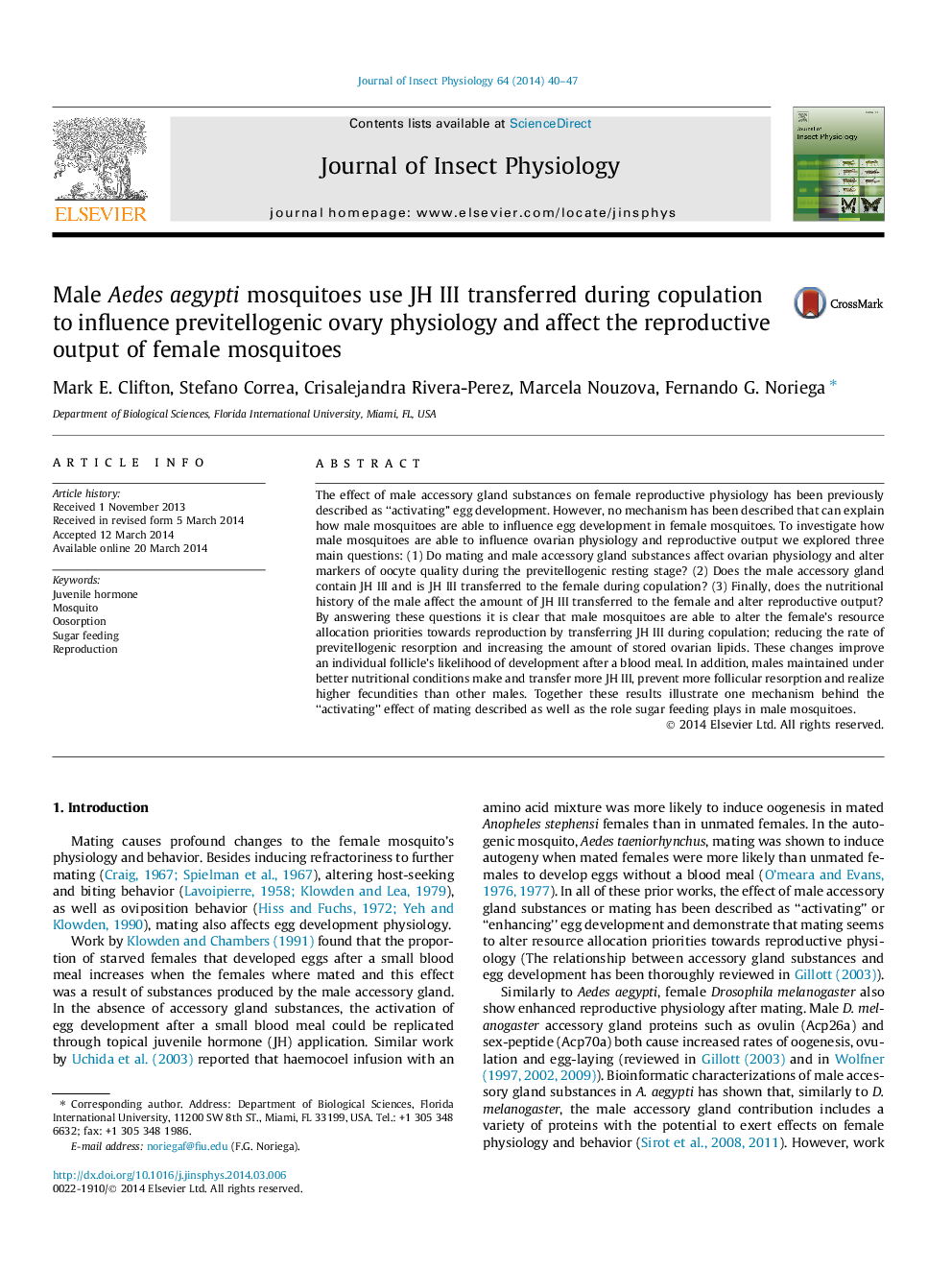| کد مقاله | کد نشریه | سال انتشار | مقاله انگلیسی | نسخه تمام متن |
|---|---|---|---|---|
| 5921634 | 1571006 | 2014 | 8 صفحه PDF | دانلود رایگان |

- Male mosquitoes contain JH III in their accessory glands.
- Male mosquitoes transfer JH III to females during copulation.
- The nutritional status of the male affects how much JH III is stored and transferred to the female.
- The nutritional status of the male influences egg output of the female mosquito, likely through JH III transfer.
The effect of male accessory gland substances on female reproductive physiology has been previously described as “activating” egg development. However, no mechanism has been described that can explain how male mosquitoes are able to influence egg development in female mosquitoes. To investigate how male mosquitoes are able to influence ovarian physiology and reproductive output we explored three main questions: (1) Do mating and male accessory gland substances affect ovarian physiology and alter markers of oocyte quality during the previtellogenic resting stage? (2) Does the male accessory gland contain JH III and is JH III transferred to the female during copulation? (3) Finally, does the nutritional history of the male affect the amount of JH III transferred to the female and alter reproductive output? By answering these questions it is clear that male mosquitoes are able to alter the female's resource allocation priorities towards reproduction by transferring JH III during copulation; reducing the rate of previtellogenic resorption and increasing the amount of stored ovarian lipids. These changes improve an individual follicle's likelihood of development after a blood meal. In addition, males maintained under better nutritional conditions make and transfer more JH III, prevent more follicular resorption and realize higher fecundities than other males. Together these results illustrate one mechanism behind the “activating” effect of mating described as well as the role sugar feeding plays in male mosquitoes.
Journal: Journal of Insect Physiology - Volume 64, May 2014, Pages 40-47